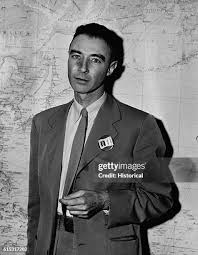The Life and Legacy of Oppenheimer: Father of the Atom Bomb

Introduction
J. Robert Oppenheimer, often referred to as the ‘father of the atomic bomb’, played a crucial role during World War II as the scientific director of the Manhattan Project. His work on nuclear physics has led to profound changes in both warfare and scientific exploration. As we reflect on his contributions amidst current global nuclear tensions, understanding Oppenheimer’s legacy proves to be ever more relevant.
Oppenheimer’s Early Life and Education
Born on April 22, 1904, in New York City, Oppenheimer showed an early aptitude for science and mathematics. He attended Harvard University and later the University of Cambridge, where he studied under renowned physicists. By the 1930s, he had established himself as a prominent theoretical physicist, contributing to quantum mechanics and advocating for scientific collaboration.
The Manhattan Project
During World War II, the urgency to develop an atomic bomb led to the formation of the Manhattan Project. In 1942, Oppenheimer was appointed as the project’s scientific director at Los Alamos Laboratory in New Mexico. Under his leadership, a diverse group of scientists worked tirelessly to design and test the bomb, culminating in the successful Trinity Test on July 16, 1945. This marked a pivotal moment in history, as the world witnessed the devastating potential of nuclear weapons.
Post-War Era and Ethical Controversy
After the bombs were dropped on Hiroshima and Nagasaki in August 1945, Oppenheimer grappled with the moral implications of his work. He famously remarked, “Now I am become Death, the destroyer of worlds” from the Hindu scripture, the Bhagavad Gita. In the following years, he became an advocate for international control of nuclear energy and opposed the development of the hydrogen bomb, which led to increasing tension with government officials and physicists alike, culminating in his 1954 security clearance hearing.
Significance Today
Oppenheimer’s influence extends beyond the scientific community; his life story serves as a cautionary tale about the responsibilities of scientists. Today, debates surrounding nuclear weapons, disarmament, and ethical scientific practice remain pertinent. Current geopolitical factors, including nuclear proliferation in various regions, echo Oppenheimer’s concerns about the devastating potential of nuclear technology.
Conclusion
The legacy of J. Robert Oppenheimer is a reminder of the duality of scientific advancement—capable of profound good or catastrophic destruction. As nations navigate the complexities of nuclear technology today, Oppenheimer’s insights and experiences continue to resonate, urging a measured and responsible approach to science and its applications. His story is not only about the creation of a weapon but also about the enduring dialogue between science and ethics, vital for fostering a safer future.









